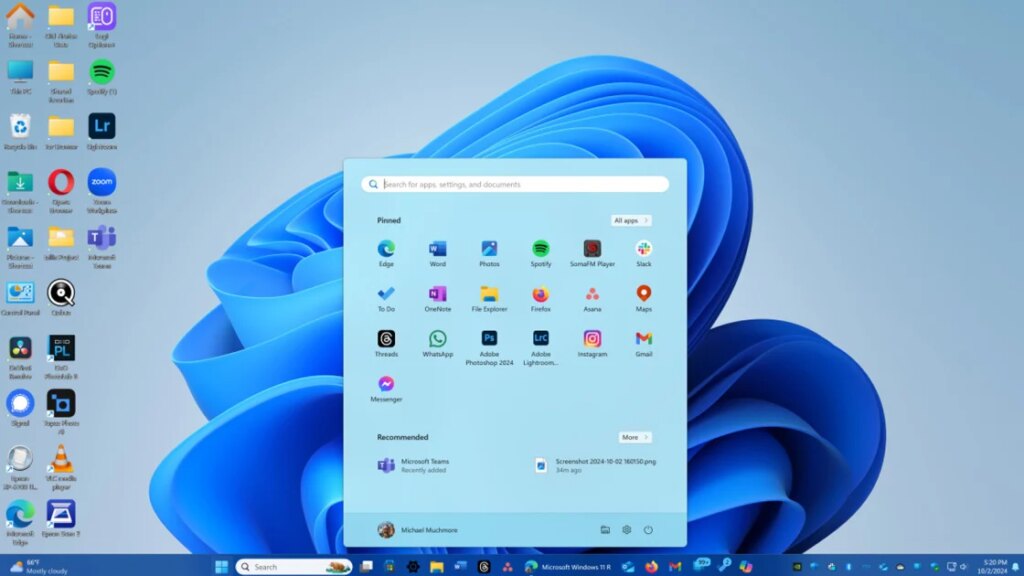Microsoft has announced that future versions of Windows 11 will support automatic memory scan prompts upon rebooting after a Blue/Black Screen of Death (BSOD). The idea is to identify and resolve memory issues rather than leaving the user to diagnose the problem. In the worst case, Windows may prompt a memory upgrade or replacement if a hardware fault is detected.
“We’re introducing a new feature that helps improve system reliability. If your PC experiences a bug check (unexpected restart), you may see a notification when signing in suggesting a quick memory scan,” noted Windows Insider Program lead Amanda Langowski.
As Bleeping Computer notes, the memory scan won’t happen without your say-so, meaning you can just skip past it if you prefer. But if you think it would be useful—and after a random BSOD, anything feels helpful—then it will perform it for you after your next reboot.
“If you choose to run it, the system will schedule a Windows Memory Diagnostic scan to run during your next reboot (taking 5 minutes or less on average) and then continue to Windows,” Langowski explained. “If a memory issue is found and mitigated, you will see a notification post-reboot.”
The prompt you’ll get when a BSOD occurs. (Credit: Microsoft)
The feature is currently being trialed as part of the new Windows 11 Insider Preview Build 26220.6982 (KB5067109). If you are part of the insider track and want to give it a try, all you need to do is run Windows Update. However, the feature is currently not active for users on Windows on ARM PCs, like Qualcomm Snapdragon Elite systems. It also doesn’t run if Administrator Protection is turned on, or if BitLocker is set up without Secure Boot enabled.
Recommended by Our Editors
Although super-technical users may not find much use for this new automated scanning option, it might give Windows users something else to go on, rather than a seemingly random BSOD error code. At the very least, it will provide them with more information to share on social media, forums, or with Microsoft’s troubleshooting team.
Users who find that their RAM is failing will also have a better chance of taking advantage of their warranty if they can find the problem early. This will also discourage them from downloading third-party tools, which have the potential to be infected with malware.
Get Our Best Stories!
Your Daily Dose of Our Top Tech News
Sign up for our What’s New Now newsletter to receive the latest news, best new products, and expert advice from the editors of PCMag.
Sign up for our What’s New Now newsletter to receive the latest news, best new products, and expert advice from the editors of PCMag.
By clicking Sign Me Up, you confirm you are 16+ and agree to our Terms of Use and Privacy Policy.
Thanks for signing up!
Your subscription has been confirmed. Keep an eye on your inbox!
About Our Expert
Jon Martindale
Contributor
Experience
Jon Martindale is a tech journalist from the UK, with 20 years of experience covering all manner of PC components and associated gadgets. He’s written for a range of publications, including ExtremeTech, Digital Trends, Forbes, U.S. News & World Report, and Lifewire, among others. When not writing, he’s a big board gamer and reader, with a particular habit of speed-reading through long manga sagas.
Jon covers the latest PC components, as well as how-to guides on everything from how to take a screenshot to how to set up your cryptocurrency wallet. He particularly enjoys the battles between the top tech giants in CPUs and GPUs, and tries his best not to take sides.
Jon’s gaming PC is built around the iconic 7950X3D CPU, with a 7900XTX backing it up. That’s all the power he needs to play lightweight indie and casual games, as well as more demanding sim titles like Kerbal Space Program. He uses a pair of Jabra Active 8 earbuds and a SteelSeries Arctis Pro wireless headset, and types all day on a Logitech G915 mechanical keyboard.
Read Full Bio

